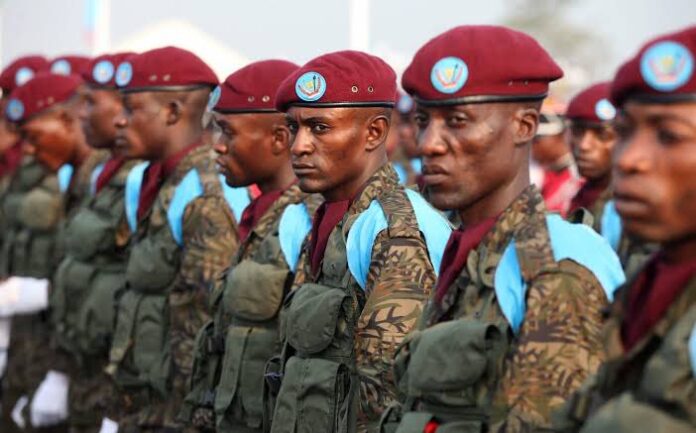Atleast 25 Congolese soldiers were sentenced to death on Wednesday for “escaping from the enemy” during recent clashes with M23 rebels. The verdict was handed down after a day-long trial in the eastern Democratic Republic of Congo, a decision that has sparked significant debate and concern among human rights advocates and military experts alike.
The soldiers, accused of fleeing from their posts during intense fighting with the M23 rebels, faced charges of desertion under military law. Their defense lawyer, who requested anonymity due to the sensitivity of the case, expressed shock at the severity and speed of the proceedings.
“The trial was expedited, lasting only a single day, which raises serious questions about the fairness and thoroughness of the legal process,” the lawyer stated. “These men were in extremely dangerous and challenging conditions, and their actions should be viewed within that context.”
The M23 rebellion, which has seen a resurgence in eastern Congo, continues to pose a significant threat to stability in the region. The group, primarily composed of Tutsi fighters, claims to defend the interests of Tutsis against Hutu militias and the Congolese army. The conflict has led to widespread displacement and numerous human rights violations.
Human rights organizations have condemned the death sentences, arguing that they undermine efforts to promote justice and human rights within the military. Amnesty International and Human Rights Watch have both issued statements calling for a review of the trial and the sentences, highlighting the need for due process and fair treatment of all military personnel.
“The imposition of the death penalty in such circumstances is deeply troubling,” said a spokesperson for Amnesty International. “The Congolese military justice system must ensure that trials are conducted fairly and that the rights of the accused are upheld.”
This case also brings to light the broader challenges facing the Congolese military, which is battling not only the M23 but numerous other armed groups in the region. Issues of morale, discipline, and adequate support for soldiers on the front lines are critical concerns that need addressing.
Military experts suggest that the sentencing may be aimed at deterring desertion and maintaining discipline within the ranks, but caution that such harsh measures could have the opposite effect, demoralizing troops and eroding trust in military leadership.
As the international community closely watches developments in the Democratic Republic of Congo, the fate of the twenty-five soldiers remains uncertain. Calls for clemency and appeals for a retrial are likely to intensify, as advocates for justice and human rights seek to ensure that the principles of fairness and due process are upheld in this critical case.
Source: Zagazola Makama




